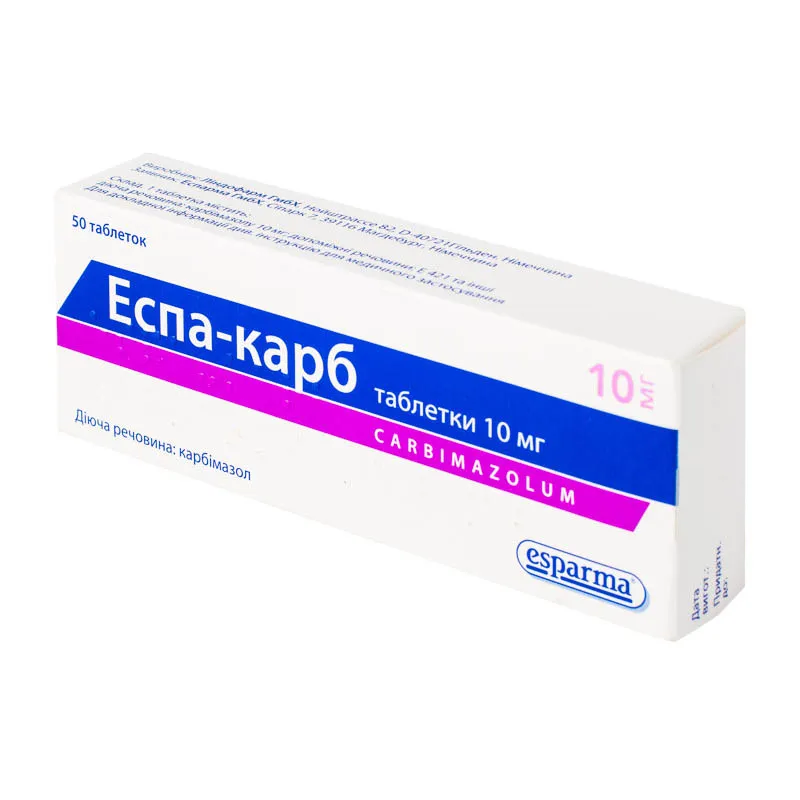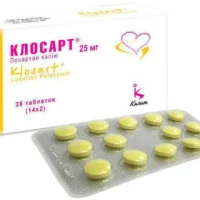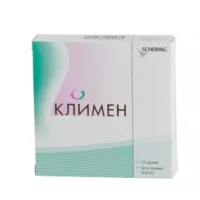Description
Espa-carb (Carbimazole) Tablets 10 mg. №50
Ingredients
Active ingredient: Carbimazole 10 mg per tablet.
Mechanism of Action
Carbimazole works by inhibiting the thyroid gland’s ability to produce thyroid hormones, thereby aiding in the normalization of hormone levels in hyperthyroidism.
Pharmacological Properties
Pharmacological Effects: Carbimazole acts by inhibiting the enzyme thyroperoxidase, which is essential for the synthesis of thyroid hormones. This mechanism helps reduce the production of excess thyroid hormones in hyperthyroidism.
Indications for Use
Indications: Espa-carb (Carbimazole) is indicated for the treatment of hyperthyroidism, including Graves’ disease.
Contraindications
Contraindications: Do not use in patients with a history of hypersensitivity to Carbimazole or other thionamide derivatives.
Side Effects
Common side effects of Espa-carb may include skin rash, itching, or gastrointestinal disturbances. Patients should consult their healthcare provider if any adverse reactions occur.
Usage Instructions
Dosage: The usual starting dose is 15-40 mg daily in divided doses. Take Espa-carb tablets orally with or without food as directed by your physician.
Benefits Compared to Analogues
Espa-carb has demonstrated efficacy in managing hyperthyroidism symptoms and improving thyroid function. Clinical studies have shown that Carbimazole is as effective as propylthiouracil in treating hyperthyroidism, with similar rates of adverse events reported in both treatment groups.
Suitable Patient Groups
Espa-carb can be used in various patient groups, including adults, children, and the elderly, under appropriate medical supervision.
Storage and Shelf Life
Store Espa-carb in a cool, dry place away from direct sunlight. Check the expiration date on the packaging and do not use the product beyond that date.
Packaging Description
Espa-carb is available in blister packs containing 50 tablets of Carbimazole 10 mg each.
Clinical Evidence and Proven Effectiveness
Research published in the “Journal of Clinical Endocrinology & Metabolism” has shown the efficacy of Carbimazole in reducing thyroid hormone levels in patients with Graves’ disease. Additionally, a comparative study published in the “European Journal of Endocrinology” demonstrated the effectiveness of Carbimazole in the treatment of hyperthyroidism.





